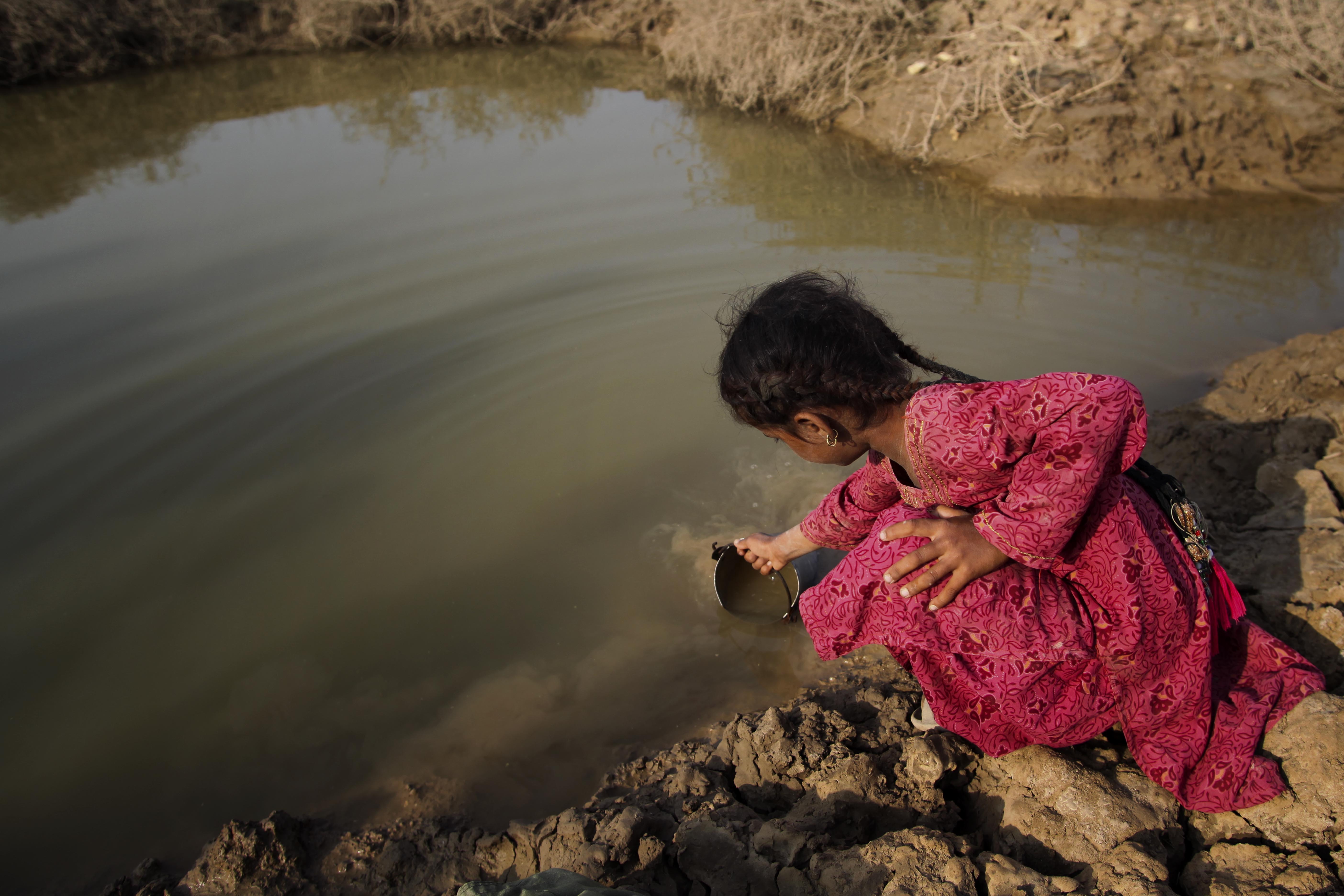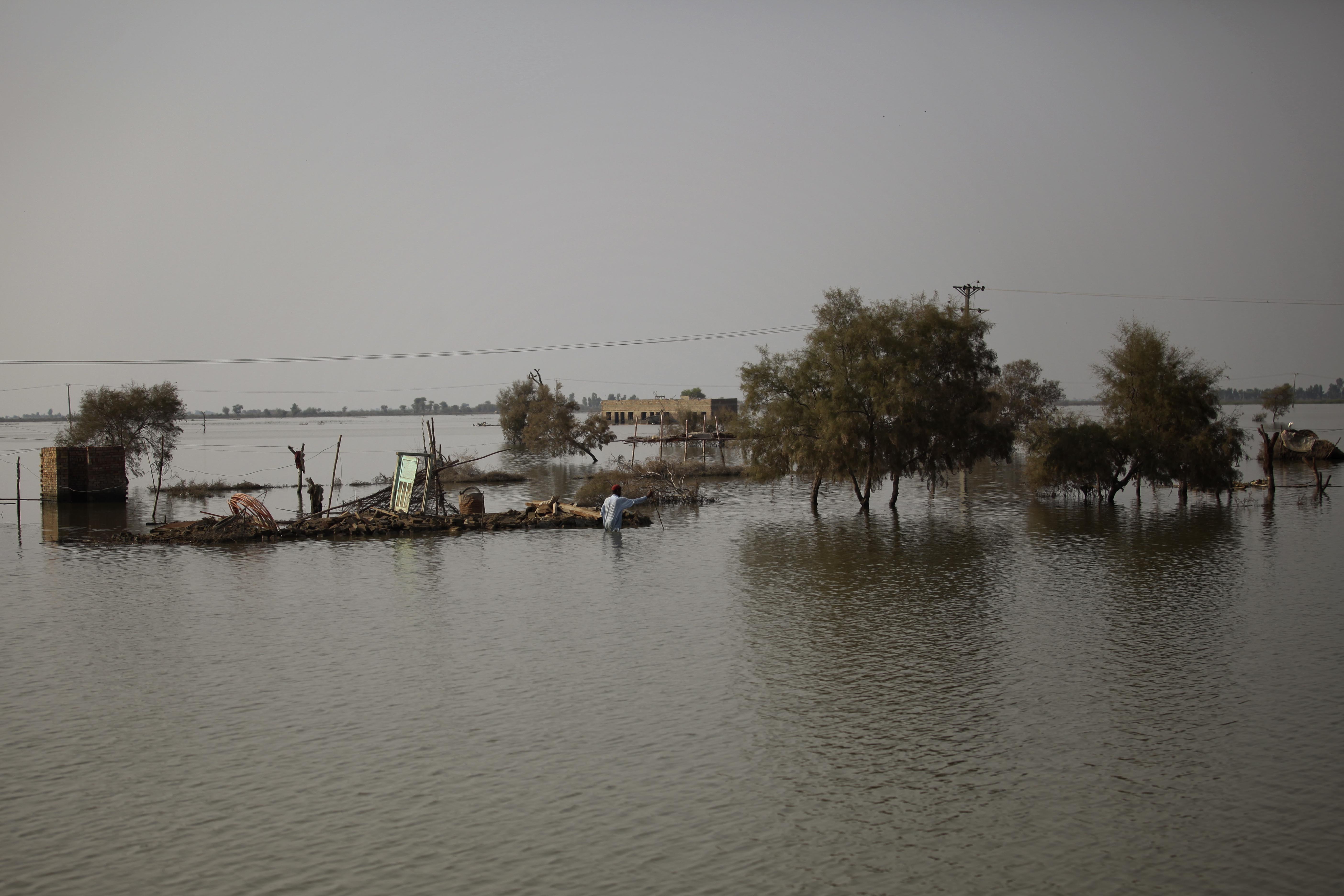Photo: Asad Zaidi
In 2009, Carter Rogers, the CEO of WWF-US, said that the language of water is the language of climate change. With water scarcity and extreme weather events becoming the new normal in many parts of the world, it’s crucial to talk about how the effects of climate change would be felt first and foremost through water systems. The United Nations Synthesis report on SDG6, raises a similar warning, that the maximum effect of climate change will be experienced through “changes in hydrological cycle, such as overall water availability, water quality and frequency of extreme weather events such as floods and droughts”. Even at the UN climate talks held last year in Poland, the issue of water availability and supply was at the heart of discussions.
Droughts and floods are not uncommon. However, climate change has been affecting the accessibility to water, creating stresses with either too much or too little water supply. It is, therefore, crucial to understand the risks posed by climate change and its impact on drinking water and sanitation services, their management and its impact on human health. The concerns for water supply include damage to water points due to flooding and loss of water resources due to changing rainfall pattern. Sanitation challenges range from damage or loss of existing infrastructure to the risk of runaway excreta. With many vulnerable communities still collecting water from nearby ponds and rivers, they would find it increasingly difficult to locate a source of water during drought. The most vulnerable populations are often the least resilient to deal with the effects of climate change. Moreover, due to the interconnected nature of water, sanitation and hygiene (WASH) services with other sectors, water scarcity and poor water quality increases the risk of diarrhea, which kills approximately 2.2 million people every year, trachoma an eye infection that can lead to blindness) and many other illnesses.

The challenges posed by climate change to the WASH systems is not a distant future scenario but a living reality in some countries. End Water Poverty’s member, IRSP Pakistan, is working in the Khyber Pakhtunkhwa (KP) Province, to campaign for the safe water and sanitation systems for the most marginalised in the country. A recent report by UNDP Pakistan (2018) outlined major climate change impacts and risks in KP region as:
- Diminishing agricultural productivity
- Recurring floods and growing risk of drought with drier weather
- Potentially higher rates of mortality and morbidity
- Diminishing glaciers and snow cover
- Increasing and potentially intensifying glacial lake outbursts floods (GLOFs)
In 2010, KP province suffered its worst floods in the recent history, affecting over 4.3 million people and causing damages to infrastructure, households, agriculture and other assets amounting to billions of dollars. (UNDP Pakistan 2018). Since then, the recurrent floods, almost every year due to changing precipitation patterns, have undermined the reconstruction efforts. On the other hand, the arid southern regions of KP province, are increasingly facing the risk of erratic rainfall pattern and high temperatures, putting water bodies and reservoirs under dry spells. Not helping this is the increase in per capita demand for water, heavy reliance on climate sensitive sectors in the province such as agriculture and inefficient use of water in both industrial and domestic sectors.
Considering the complex nature of the WASH sector. a multi-sectoral participation is crucial to build consensus on sustainable solutions. To leave no one behind, the Government should develop climate resilience strategies by including guidelines from SACOSAN and theSDG framework. Similarly, 9 out of 10 countries have prioritised water action in their nationally determined contributions (NDC), as per the recent report by the Global Water Partnership. The concerns raised in the NDCs are primarily in terms of floods and drought, long term increases and decreases in average precipitation, increased seasonal and interannual precipitation variability, coastal erosion, and saltwater intrusion (GWP Report, 2018).

It is now more important than ever, for the other stakeholders, such the civil society to mobilise their Governments to take immediate actions to adapt to climate change. Additionally, CSOs should rethink their advocacy strategies to include the following recommendations and adapt them to their national realities for building climate resilience in their countries:
- Push your government to strengthen national policy framework for addressing water and sanitation as a crucial component of climate change adaptation. Such policies should help build resilience especially for those who are left behind such as women, children, elderly, disabled and those living in remote locations.
- Build advocacy strategies around the recent WHO/UNICEF Joint Monitoring Programme mandate on “safely managed” WASH services. Availability, accessibility and affordability of services in critical as climate change exacerbates already existing inequalities in the system.
- Investment in sustainable WASH infrastructure reduces people’s vulnerability to water stress and climate shocks. There is an urgent need for a large proportion of climate finance to be dedicated to adapting plans for communities already on the frontlines of climate change. For provinces severely affected by climate change such as KP, the Government should allocate separate budget head for water and sanitation.
- Reach out to the youth organisation and networks to include their voices in climate policy planning and implementation.
- Advocate for capacity building in terms of training of staff in government line ministries on climate change adaptation and building resilience for vulnerable communities.
Since its inception, End Water Poverty has been campaigning for human rights to water and sanitation. For billions of people, water related infrastructure and services, if at all existent, will be under threat because of climate change. It is more important to provide safe WASH services for all. Safely managed water and sanitation services represent an ambitious global benchmark, but it’s a step in the right direction towards realising human rights to WASH and building resilience for climate change.